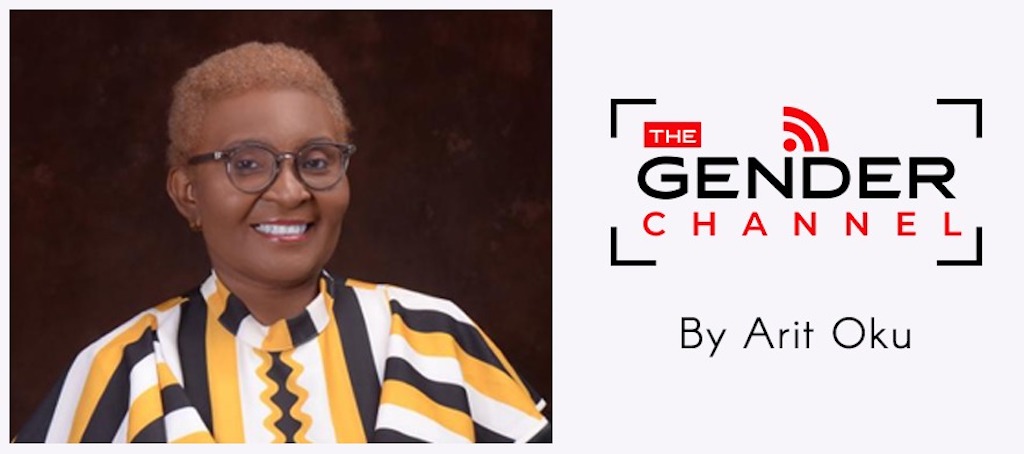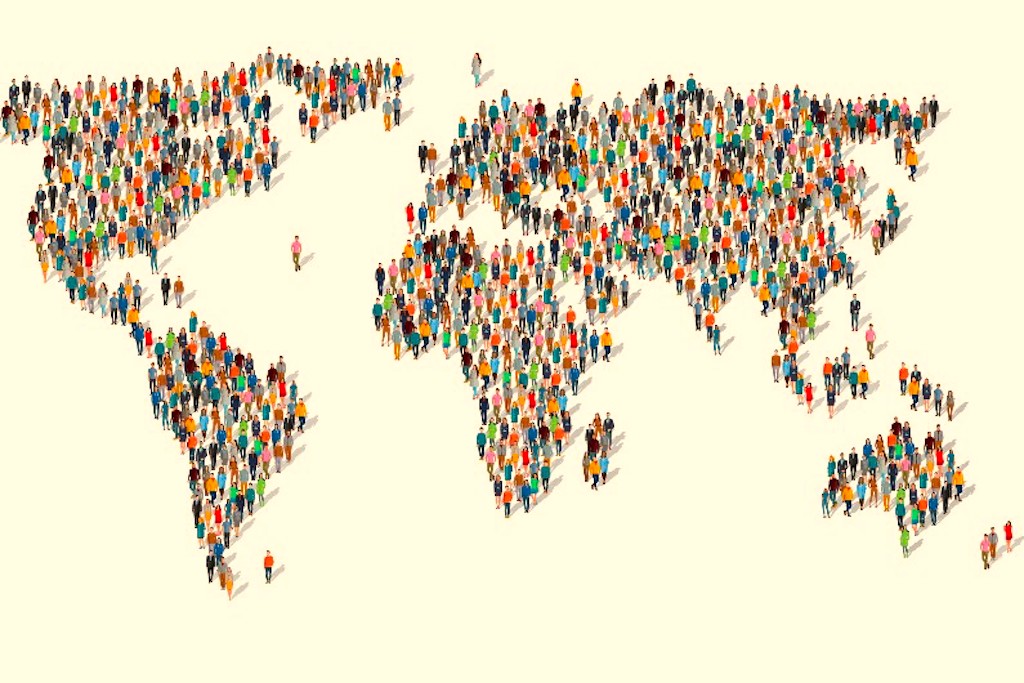www.aljazeerah.info
Opinion Editorials, January 2023
Archives
Mission & Name
Conflict Terminology
Editorials
Gaza Holocaust
Gulf War
Isdood
Islam
News
News Photos
Opinion Editorials
US Foreign Policy (Dr. El-Najjar's Articles)
www.aljazeerah.info
A World of Eight Billion Humans: A Change or Break Situation? By Arit Oku Premium Times, January 29, 2023 |
 |
 |
|
I am no mathematician, but it appears that a population bursting at the seams, plus an unfulfilled youth simmering with resentment and angst, inadequate education, unemployment and contested resources, is equal to trouble.
We can no longer bear the brunt of leadership uninformed about sustainability and development. We are in a change or break situation – on the very brink of disaster. We can choose the path to destruction or the path to development, growth and renewal with the assets we have – our rising population of energetic, innovative and creative youth.
In 2020, during the course of my work as a researcher and writer, I had the rare opportunity to work in internally displaced persons camps, where I engaged with teenage girls. I met girls so traumatised by their personal experiences of violence, conflict, insurgency, and displacement; they could hardly speak before breaking down in tears.
Thankfully, there were NGOs working to meet their more basic needs as growing girls in the season of puberty, providing essential commodities such as sanitary towels. Commodities that we usually take for granted but which were novel to the girls and highly prized. They were excited about receiving these towels almost as girls in the higher rungs of the population would value brand-new bikes or travels outside the country on vacation. Many were accessing sanitary towels for the very first time in their lives.
Likewise in 2014, if I recall correctly, I conducted focus group discussions (FGDs) with male and female youth in Ogoni community in Nigeria’s Niger Delta; actually the hometown of late Ken Saro-Wiwa, a Nigerian writer. My colleague on that assignment broke down in tears just listening to the young people vent so much anger towards the government, the society, and most especially their parents whom they felt had let them down due to the massive deprivations they suffered, including non-access to amenities such as power supply, and even basic education and employment opportunities. These featured prominently as contributors to their frustration and disgust. I left that meeting fully persuaded that this high-level of discontent among the youth laid the foundation for the militancy and insurgency in Nigeria’s oil-producing Niger Delta region.
These are more than just anecdotes; they are a very real backdrop to a potential crisis the world might be heading toward. Recently (on 15 November 15, 2022), the world’s population was projected to hit the eight billion mark. “More than half of the projected increase in the global population up to 2050 will be concentrated in eight countries: the Democratic Republic of the Congo, Egypt, Ethiopia, India, Nigeria, Pakistan, the Philippines and the United Republic of Tanzania”, the United Nations reported on its website.
I am no mathematician, but it appears that a population bursting at the seams, plus an unfulfilled youth simmering with resentment and angst, inadequate education, unemployment and contested resources, is equal to trouble.
Developing countries like Nigeria, with the greater bulk of Africa’s population of about 1.5 billion (UN estimates) must tow the path of wisdom in their choice of leadership that can tactfully and strategically harness the dividends we enjoy as a nation blessed, not only with material and natural resources but even, more importantly, we must harness wisely the demographic dividends of our huge population of youth, both male and female. Emphasis should be on prioritising education, health, employment and other human development indices in the deployment of the resources we have.
What good would it do Nigeria if our teeming mass of over 200 million people (out of the 1.5 billion people spread across Africa’s other 53 nations) are displaced in makeshift camps or are out-of-school and unable to access educational resources? For example, the few medical doctors who graduate annually, and who are largely trained for free in our public universities, are trooping out in droves the minute they take the Hippocratic oath.
A key takeaway is that development is not just about kilometres of roads and flyovers that are built. Human-focused development promotes a healthy, educated population with access to key resources that make for economic development and wealth creation, enabling production and access to markets.
Nobel Laureate Amartya Sen argued that expanding human freedom is a pre-requisite for achieving human development. He further pointed to some key ingredients necessary to enhance human capabilities: “economic opportunities, political liberties, social powers, and the enabling condition of good health, basic education, and the encouragement and cultivation of initiatives.”
We can no longer bear the brunt of leadership uninformed about sustainability and development. We are in a change or break situation – on the very brink of disaster. We can choose the path to destruction or the path to development, growth and renewal with the assets we have – our rising population of energetic, innovative and creative youth.
We choose the path of destruction if we elect to harbour an increasing mass of educated or semi-educated and unemployed youth; uneducated, out-of-school youth; angry, disenfranchised youth, and when we choose to remain an import-driven economy failing to convert our raw materials into finished products – be it crude oil or cocoa or tomatoes. When we do not provide the enabling environment that medium and small-scale enterprises need to grow and flourish. In this scenario, the youth will become more restive and aggressive, culminating in different kinds and levels of unrest, militancy, insurgency, kidnappings and terrorism, and the unleashing of avoidable mayhem. We will have Thomas Malthus’ prophecy of a high population nightmare continue to unfold!
The humble question that remains to be asked is: what would form the crux of the campaign manifestos of aspiring politicians? There will be no need to make the perpetual and unfulfilled promises of providing uninterrupted power supply and improving agriculture and transport. Perhaps then, we would be liberated to discuss topics that are competitive globally, such as funding health-focused research to eradicate malaria…
What good would it do Nigeria if our teeming mass of over 200 million people (out of the 1.5 billion people spread across Africa’s other 53 nations) are displaced in makeshift camps or are out-of-school and unable to access educational resources? For example, the few medical doctors who graduate annually, and who are largely trained for free in our public universities, are trooping out in droves the minute they take the Hippocratic oath. Worse still, a large percentage of Nigeria’s educated youth are being taken on daily by the wealthy nations in the Northern Hemisphere, while we stand and stare and utter ‘Tufiakwa!’ (God Forbid in Igbo language).
The truth is that these nations are doing something wise about their declining and aging populations. They are milking the best, cleverest and most promising African and Asian youths, while still holding what may be called a strong stance against immigrants. Who is to blame them for being pragmatic and forward-looking? Not so the sub-Saharan African nations like Nigeria who will soon pretty much have nothing to export, except their youth resources, even as this region of Africa is poised to overtake Asia by mid-century in terms of population explosion.
But dare we imagine another scenario – an educated, healthy, population of young people (inclusive of males, females, people with disability) employed in Nigeria’s highly productive and export-driven economy spanning critical sectors such as agriculture, technology, transport, health and pharmaceuticals, engineering, petrochemicals and other sectors. And who are buoyed by efficient power, transportation, security and policing systems; as well as publicly supplied water and sanitation sectors that are delivering real value to consumers, irrespective of class or location. Not leaving out the already burgeoning arts, music and film industries, which continue to break more formidable boundaries on the global stage. Also, rural communities enjoy socio-economic development as good as the cities and towns, and they no longer suffer the brunt, neglect and poverty that the preface “rural” attracts today.
The humble question that remains to be asked is: what would form the crux of the campaign manifestos of aspiring politicians? There will be no need to make the perpetual and unfulfilled promises of providing uninterrupted power supply and improving agriculture and transport. Perhaps then, we would be liberated to discuss topics that are competitive globally, such as funding health-focused research to eradicate malaria, sickle cell and to ensure that our black mark, as one of the countries with the highest maternal mortality rates globally, is blotted out. It is time to wake up from our collective tranquilliser or our habitual ostrich pose, with our heads buried in sand and our backsides exposed to the elements. A word, as they say, is enough for the wise.
A world of eight billion humans: A change or break situation?, By Arit Oku (premiumtimesng.com)
***
|
|
|
|
||
|
||||||


